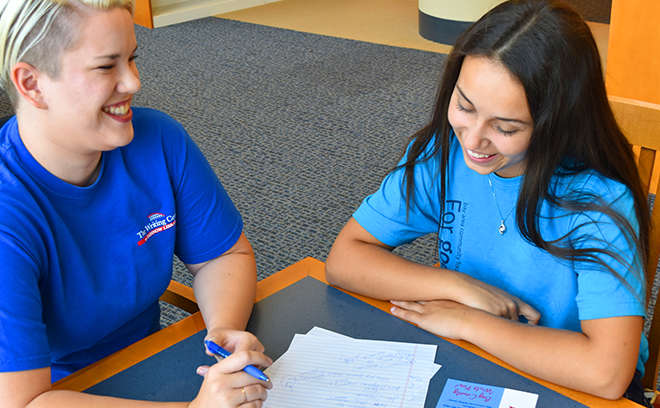Writing is a fundamental skill that transcends academic success, extending into professional achievements and personal expression. For those seeking to enhance their writing prowess, tutoring provides a personalized and effective avenue for improvement. In this comprehensive guide, we’ll explore the various strategies, techniques, and approaches employed in tutoring to elevate individuals’ writing skills to new heights.

The Tutoring Advantage
Tutoring begins with a personalized assessment of the writer’s strengths and weaknesses. Tutors pinpoint specific areas for improvement, whether it be grammar, sentence structure, or overall composition.
Tailoring Writing Exercises
Customized writing exercises help learners practice and reinforce specific skills, gradually building a strong foundation for effective communication through writing.
Constructive Feedback Loop
Regular feedback is a cornerstone of effective tutoring. Tutors provide constructive criticism, highlighting areas of improvement while acknowledging and reinforcing the writer’s strengths. This feedback loop is invaluable for continuous progress.
Setting Realistic Goals
Tutors work collaboratively with learners to establish achievable writing goals. These goals serve as milestones, allowing writers to track their progress and celebrate incremental successes, fostering motivation and commitment.
Strategies for Writing Improvement
Tutors delve into the nuances of grammar and mechanics, addressing common pitfalls and guiding writers toward clarity and precision. By mastering the rules of language, writers can convey their ideas with greater accuracy.
Organization and Structure
Tutoring emphasizes the importance of clear organization and logical structure. Writers learn how to craft well-organized essays, reports, or narratives, ensuring a seamless flow of ideas that captivates the reader.
Vocabulary Enrichment
Tutors facilitate vocabulary enrichment exercises, expanding writers’ linguistic repertoire. A rich vocabulary not only enhances expression but also adds depth and nuance to the writer’s voice.
Critical Thinking and Analysis
Writing is not just about words; it’s about ideas. Tutors guide writers in honing critical thinking skills, encouraging them to analyze, synthesize, and present their thoughts coherently and persuasively.
Creativity and Style
Tutoring sessions nurture creativity and individual style.
Overcoming Common Challenges
Tutors provide techniques to overcome writer’s block, fostering a conducive writing environment and offering exercises that stimulate creativity.
Revision and Editing
Learning the art of revision and self-editing is a crucial aspect of tutoring. Writers develop a keen eye for refining their work, ensuring clarity, coherence, and conciseness.
Time Managemen
Tutors assist writers in developing effective time management skills. Breaking down the writing process into manageable steps helps writers overcome procrastination and meet deadlines with confidence.
Building Confidence
Confidence is integral to effective writing. Tutors employ positive reinforcement and gradual challenges to build writers’ confidence in expressing themselves through words.
Realizing Long-Term Progress
The ultimate goal of tutoring is to empower writers to become independent and self-assured in their writing abilities. Tutors encourage regular writing practice to solidify skills and foster ongoing improvement.
Continued Support
Additionally, Even as writers gain independence, the relationship with the tutor often continues. Periodic check-ins and additional support sessions ensure that writers continue to refine their skills and address new challenges that may arise.
Exploring Specialized Writing
Tutors guide writers in exploring specialized forms of writing, such as creative writing, technical writing, or business writing. This diversification enhances the writer’s versatility and opens up new avenues for expression.
Publication Opportunities
For advanced writers, tutors may assist in identifying and pursuing opportunities for publication, whether in academic journals, magazines, or online platforms. Hence, further showcasing and validating their writing skills.
Conclusion
Improving writing skills through tutoring is not just about correcting errors; it’s a transformative journey of growth and self-discovery. By addressing individual needs, setting achievable goals, and providing ongoing support, tutors unlock the full potential of writers, enabling them to communicate with clarity, confidence, and creativity.




